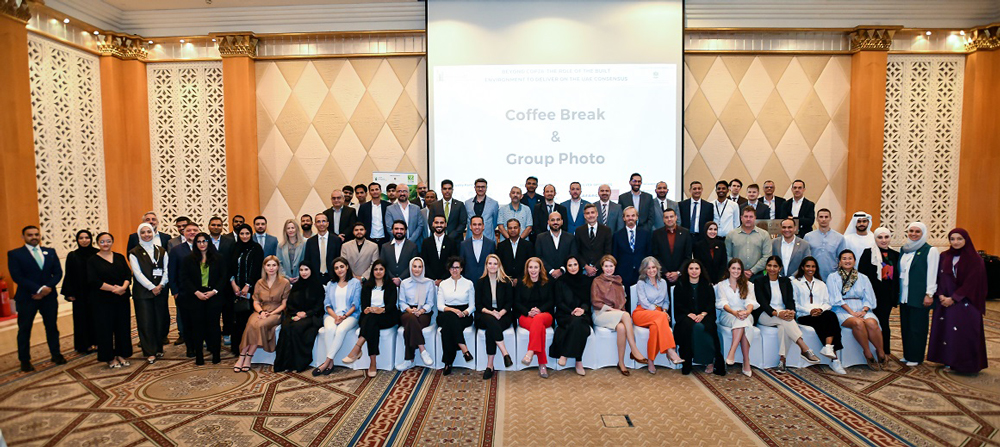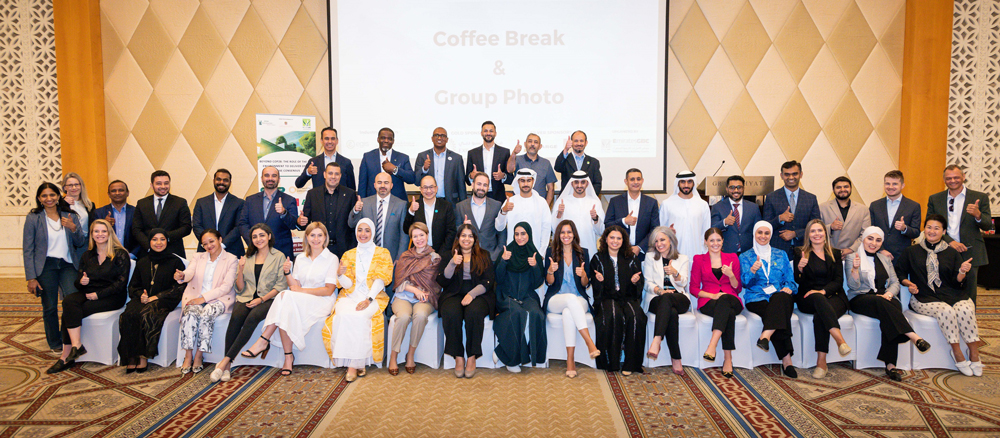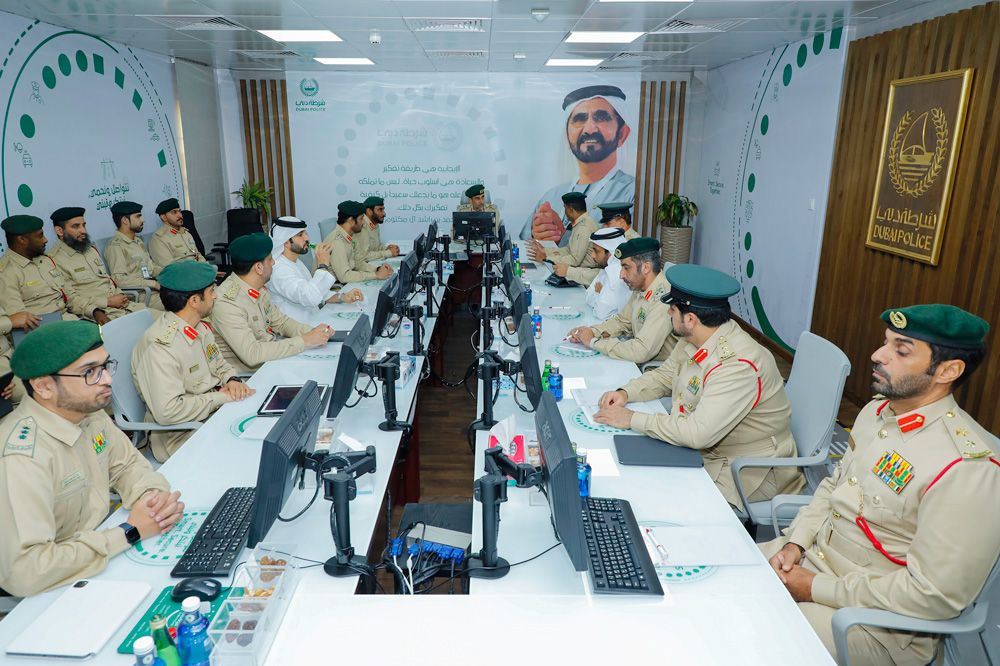Dubai, UAE – Building on the momentum of COP28 outcomes, the Emirates Green Building Council (EmiratesGBC) convened its 13th Annual Congress at the Grand Hyatt, Dubai. The event brought together policymakers, regulators, industry leaders, and academia to explore the crucial role of the built environment in facilitating global sustainability and accelerating climate action. The Congress, themed ‘Beyond COP28: The Role of the Built Environment to Deliver on the UAE Consensus,’ aimed to deliver on key energy and climate commitments from the COP28 conference through tangible actions to keep the 1.5 °C goal within reach.
EmiratesGBC, a non-profit organization promoting green building practices, hosted regional and international experts to discuss challenges, identify opportunities, and share best practices for transforming the industry and implementing the ambitious commitments of The UAE Consensus. Khaled Bushnaq, Chairman of EmiratesGBC, welcomed guests, while Elham AlQasim, Chief Strategy and Technology Officer at Majid Al Futtaim Holding, delivered opening remarks on behalf of H.H. Sheikha Shamma bint Sultan bin Khalifa bin Zayed Al Nahyan, Honorary President of EmiratesGBC, and President and CEO of UAE Independent Climate Change Accelerators (UICCA).
The 2024 Congress featured five thematic sessions: Actioning COP28 Outcomes, Policies Driving Sustainability in the Built Environment, Green Supply Chain, Accelerating Progress to Net Zero, and Financing the Transition in the Built Environment. In her opening remarks, Elham AlQasim highlighted the sector’s role in achieving net zero targets, noting that 81.4% of the total emissions reduction targeted by 2030 is expected to come from the building sector. She emphasized the need for ambitious projects and innovative solutions to drive the nation’s environmental sustainability and climate change mitigation efforts.

Despite the building and construction sector being responsible for nearly 40% of global carbon emissions, AlQasim pointed out that it also has the potential to close the gap to 1.5°C through energy-efficient, regenerative, and just transitions. She stressed the importance of focusing on renewables, demand-side management, water and energy use efficiency, and reduced resource consumption to advance the UAE’s net zero ambitions.
Khaled Bushnaq reiterated the importance of leveraging cutting-edge technologies, innovative design strategies, and updated building codes to advance the green building agenda in the UAE. He emphasized the need for retrofitting and green finance mechanisms to enhance local resilience and reduce existing vulnerabilities. He concluded by stating that achieving net zero is no longer a distant goal, but a critical objective within reach.
Participants highlighted the UAE’s ‘pro-climate, pro-growth’ strategy, which aims to reduce the country’s environmental footprint and set higher climate action goals. Under the Third Update of the Second Nationally Determined Contributions (NDC), the UAE targets a 40% emission reduction by 2030 compared to business as usual. The building sector, responsible for 27% of the UAE’s greenhouse gas emissions as of 2019, presents an opportunity for a 56% emissions reduction by 2030, making it a critical sector for meeting the UAE’s net zero targets for 2050 under the Paris Agreement.
Speakers at the Congress emphasized the importance of effective building policies, sustainable practices, green finance, and the availability of performance data in creating a resilient sector. The discussions also focused on increasing awareness of green materials to address embodied emissions, fostering greater collaboration with the private sector, and promoting green finance to meet targets. They reflected on the challenges and identified five key enablers for greater climate action in the UAE’s built environment: Policies and regulations, Building materials and systems, Finance, Data, and Skills.
The EmiratesGBC 13th Annual Congress showcased the UAE’s commitment to driving sustainable building practices and emphasized the pivotal role of the built environment in achieving national and global climate goals.















